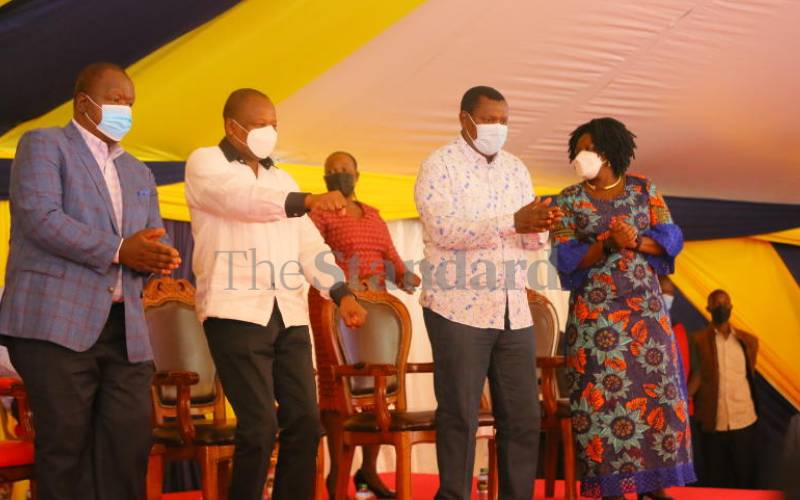×
The Standard e-Paper
Smart Minds Choose Us

Rangwe MP Lilian Gogo (R), Nyaribari Chache MP Richard Tongi, Health CS Mutahi Kagwe and his Interior counterpart Fred Matiangi in dance at Nyaura, Kisii County. [Sammy Omingo, Standard]
President Uhuru Kenyatta’s cabinet has muddled the line between government and politics.